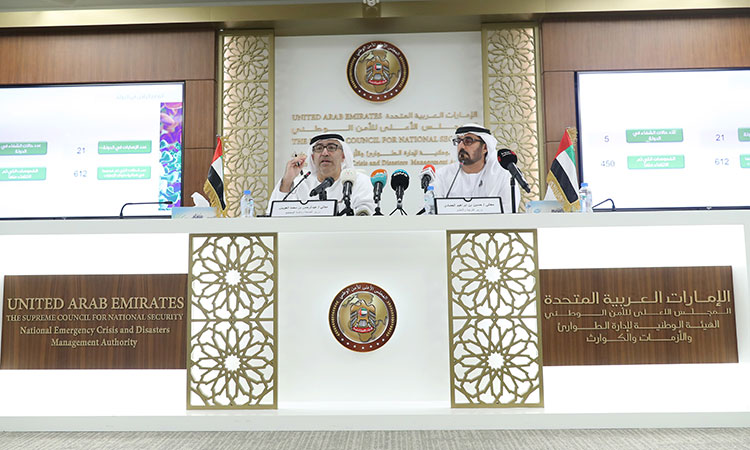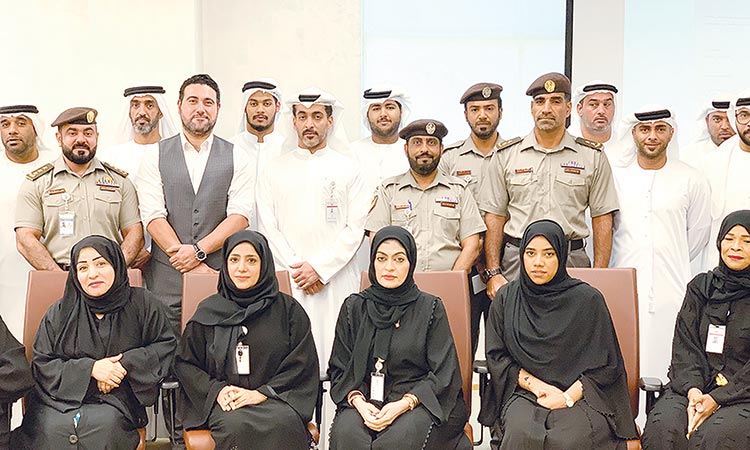Dry eyes most common problem in UAE: Expert

Photo has been used for illustrative purposes.
Mariecar Jara-Puyod, Senior Reporter
An ophthalmologist has identified the top five eye problems in the last five years, in the region and in the UAE. Among these are digital eye strain and dry eyes.
“I strongly suggest that refractive error corrections be included in the insurance policies as refractive errors affect the quality of life as well as the productivity of everyone affected in their active years of life,” Dr. Mohammad Emad Alilo also emailed.
The corneal and refractive surgeon has 25 years of experience—15 years in his home country of Syria, two years in the UK, and eight years in the UAE.
Alilo of the Medcare Hospitals in Sharjah and Dubai was interviewed after discussing the management of dry eyes at the recent Ministry of Health and Prevention-organised “5th Al Qasimi International Ophthalmology Conference” in Dubai.
In that conference, a female Emirati ophthalmologist in Abu Dhabi presented how a medical team successfully addressed the “optic nerve swelling” of a Downs Syndrome-afflicted seven-year-old boy.
A female eye specialist from India talked on how the “drooping of eyelids” of a 24-year-old woman, a condition she had had from six months old, was resolved.
The top five eye problems in the Middle East and North Africa are:
• Dry eyes due to the use of air conditioning at almost all facilities.
• Digital eye strain is a new concern arising from “the extended usage of screen through personal computers, laptops, mobile phones, and similar gadgets.”
• Refractive errors such as near/farsightedness, astigmatism, and presbyopia (long-sightedness), common in the middle/old age caused by the loss of the elasticity of the eye lens, affect the 20s to 30s expatriates who go home for good once retire-able or retired.
• Conjunctivitis (pink/sore eyes) and allergic eye disease due to the dust and sandstorms as well as too much exposure to the sun and the ultraviolet rays.
Alilo said his conference lecture was on dry eyes and as this is the most common in the region and in the UAE, which could be at its severest, “new development in technology and management” have been established.
“Cataract and diabetic eye disease show low prevalence (because of) the high standard of health care and the availability of the latest technology (which have proved) to be effective tools.”
Alilo claimed all the five are curable, adding the following general tips for prevention:
• Avoid direct exposure to the sun, dust and chemicals. Use sunglasses or eye shades.
• Adjust work environment and avoid possible long exposure to the airconditioning.
• Practise good eye hygiene which begins with diet and nutrition of Omega 3 fatty acids, lutein, zinc, and Vitamins C and E.
• Rest and sleep well.
• Go for regular eye check-ups. Children from age four should be taken for eye doctor consultations for they are unable “to complain” about possible eye problems. Those 50 and above must go for comprehensive eye check-ups especially when they have a family history of diabetes, hypertension, glaucoma (retinal degeneration).
“Dry eyes can be managed by addressing the real pathology behind it to know the proper treatment beside extended use of eye lubricants. Conjunctivitis can be treated by knowing which has caused it, whether viral or bacterial. There are suitable medications. Wash hands frequently and (refrain from) touching the eyes to avoid the spread of the infection. Proper and correct eyeglasses, permanent laser vision correction and the new premium intra ocular lenses (are solutions to refractive errors). Allergic eye diseases can be managed by (the non-exposure) to allergens and the extended use of anti-histamine and immune modulators which control the immune status of the ocular surface and to prevent attacks.”
Digital eye strain could be resolved by taking breaks from the continuous use of electronic digital gadgets, “intentionally increasing the eye blink rate” (average is between eight and 21 times per minute which rises when in conversations), and “enough sleeping hours.”
“Our eyes are our windows to the world. Please keep them fit and healthy.”







